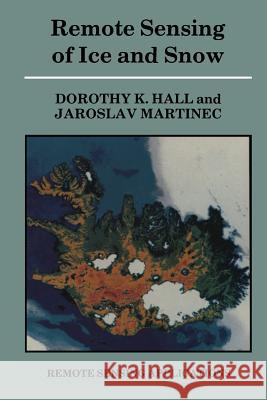Remote Sensing of Ice and Snow » książka
Remote Sensing of Ice and Snow
ISBN-13: 9789401086479 / Angielski / Miękka / 2011 / 189 str.
Remote sensing using aircraft and satellites has helped to open up to intensified scientific scrutiny the cold and remote regions in which snow and ice are prevalent. In this book, the utility of remote sensing for identifying, mapping and analyzing surface and subsurface properties of worldwide ice and snow features is described. Emphasis is placed on the use of remote sensing for developing an improved understanding of the physical properties of ice and snow and understanding the interrelationships of cryospheric processes with atmospheric, hydrospheric and oceanic processes. Current and potential applications of remotely sensed data are also stressed. At present, all-weather, day and night observations of the polar regions can be obtained from sensors operating in different portions of the electromagnetic spectrum. Because the approaches for analysis of remotely sensed data are not straightforward, Chapter 1 serves to introduce the reader to some of the optical, thermal and electrical properties of ice and snow as they pertain to remote sensing. In Chapter 2 we briefly describe many of the sensors and platforms that are referred to in the rest of the book. The remaining chapters deal with remote sensing of the seasonal snow cover, lake and river ice, permafrost, glacier ice and sea ice.











